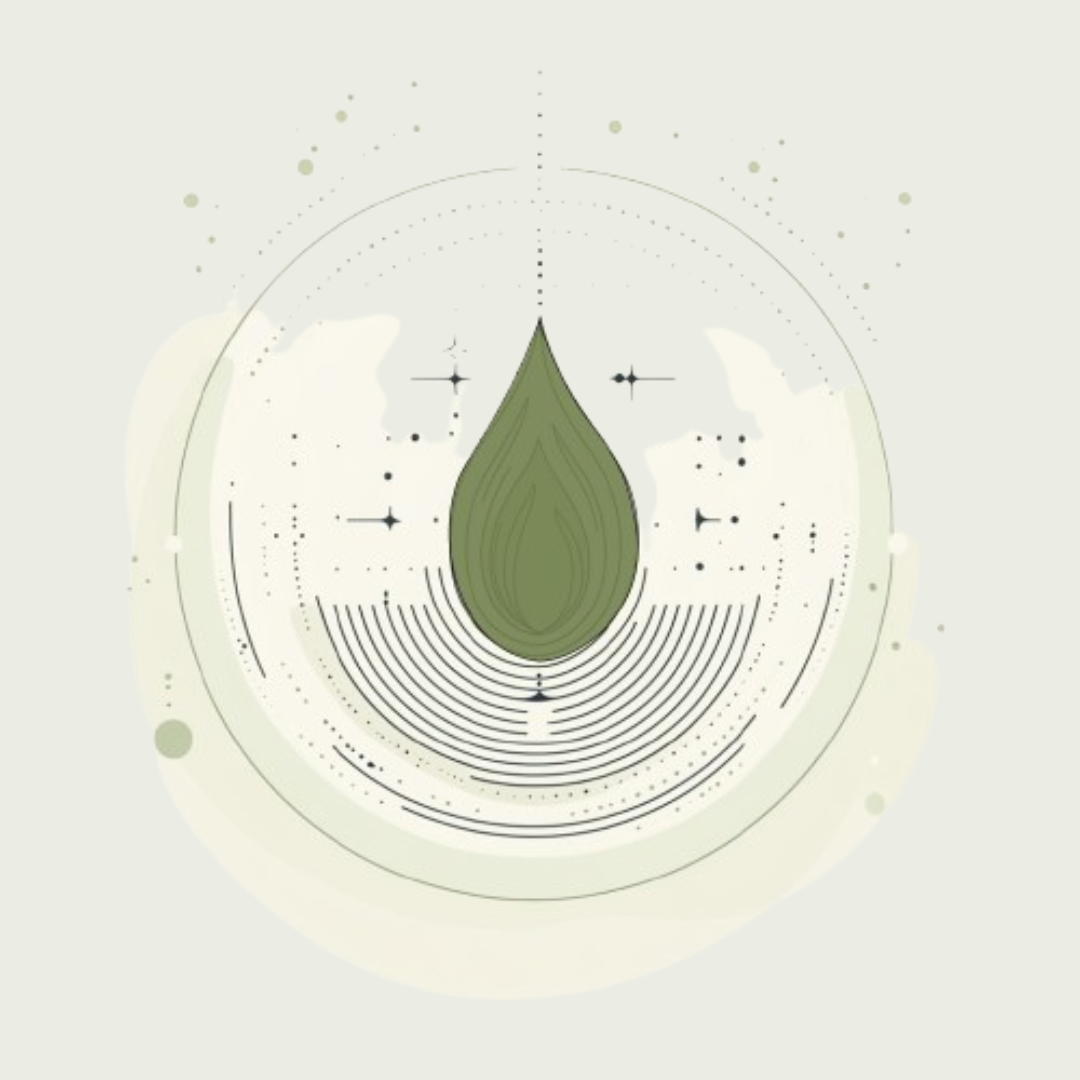Menopause is one of those big, natural shifts every woman goes through, but it can feel like a rollercoaster. Hot flashes, mood swings, restless nights, and constant tiredness can all show up at once. But the truth is, menopause isn’t an illness. It’s a transition, a new chapter your body is stepping into.
In Ayurveda, this phase is seen as a chance to pause and rebalance. It focuses on calming the inner energies, especially Vata and Pitta, which tend to get a little out of sync during this time.
With the help of herbs, gentle therapies, and simple lifestyle changes, Ayurveda offers a natural and supportive way to move through menopause feeling more in control, grounded, and like yourself.
What is Menopause?
Menopause marks the phase in a woman’s life when her menstrual cycles come to an end. It usually happens between the ages of 45 and 55. Doctors confirm menopause when a woman hasn’t had her period for a full year. While it marks the end of monthly periods, it also sets off a wave of physical and emotional changes due to the natural decrease in reproductive hormones.
Etymology of Menopause: Origins and Occurrence
The term "menopause" comes from two Greek words—‘men’ (month) and ‘pausis’ (pause), meaning the end of monthly cycles.
Interestingly, while menopause is common among human females, some animals experience it too. Short-finned pilot whales and killer whales are the only other mammals known to go through this stage. Surprisingly, some fish, birds, and even a few invertebrates have also been observed to survive this intense transition.
What Causes Menopause?
Menopause isn’t a disease or something to worry about; it’s an entirely natural phase of life. This transition can bring changes in your cycle, mood, sleep, and more, but it's simply your body moving into a new rhythm.
Age
Most women reach menopause naturally between 45 and 55 years of age, typically around 49. This has prevalently acclaimed as the age at which most women reach the phase when they experience their last menstrual period.
Premature Ovarian Failure (POF)
For women with conditions like autoimmune diseases, thyroid problems, diabetes, or those who’ve had chemotherapy, their hormone levels, especially the Luteinizing Hormone (LH) and Follicle-Stimulating Hormone (FSH), can sometimes spike, which might lead to early menopause.
Similarly, women with reproductive issues like endometriosis or Polycystic Ovary Syndrome (PCOS) might also experience menopause earlier than expected. It’s all part of how the body reacts to different health challenges.
Surgical Menopause
When menopause happens due to surgery, like removing the ovaries or uterus, it's called "surgical menopause." Since the body’s hormones take a sudden dip, it can bring on some tough symptoms, like hot flashes, night sweats, vaginal dryness, and trouble sleeping. It can feel like a big change, and your body might need some time to adjust to everything happening all at once.
Understanding Perimenopause & Its Symptoms
Perimenopause is the stage in a woman’s life just before menopause, where the body starts getting ready for that big transition. It’s often called the menopausal transition. During this time, you might notice a few changes, and here are some of the common symptoms that come with it:
1 Dysfunctional or Irregular Menstrual Bleeding
During perimenopause, some women might experience spotting or light bleeding, which happens as the body transitions. This is usually linked to changes in the genital area. However, any bleeding that occurs after menopause should be taken seriously and checked by a doctor right away, as it could be a sign of something more serious.
2 Vaginal Dryness
This is pretty common during perimenopause and menopause, mostly due to lower estrogen levels. It can cause irritation, more frequent UTIs, pain during sex, or even bleeding afterwards.
Also read: Urinary Tract Infections and Ayurveda: Treatment, Precautions, Management!
3 Emotional Imbalance
Mood changes, anxiety, forgetfulness, low libido, and even depression can happen during this time.
4 Cognitive Impairment
A lot of women going through perimenopause notice some memory issues; it's actually pretty common, affecting about half of those in transition. This may be caused by reduced estrogen levels in the brain or changes in brain blood flow, which are sometimes associated with hot flashes.
5 Joint Issues
One of the risks that comes with menopause is joint issues like osteopenia and osteoporosis. These conditions affect the bones and can make them weaker.
6 Cardiovascular Issues
It’s also important to monitor heart health during menopause, as the risk of heart disease, including heart attacks, can increase. The good news is that staying active and living a healthy lifestyle can go a long way toward managing the risk factors and keeping your heart strong.
7 Other Symptoms
There are a bunch of other symptoms that can pop up during this time, too. Things like tiredness, backaches, sore or tender breasts, stiff joints, heart palpitations, dizziness, dry or itchy skin, weight gain, and even urinary issues can all happen. Plus, you might notice your sleep patterns getting a little erratic, along with those classic night sweats and hot flashes.
Coping with the Menopause Symptoms & Addressing Key Concerns
During menopause, it's totally normal to feel a little down or stressed out now and then. Those hormone fluctuations can really mess with your mood, and it’s okay to ask for help if you're not sure how to get things back on track. Along with leaning on your family for support and practicing some self-care, here are a few ways to manage those menopause blues:
- Exercise: Regular exercise is great for managing weight and can also lift your mood. In addition, it reduces the risk of lifestyle diseases like diabetes and heart disease.
- Calcium and vitamin D supplements: Foods packed with calcium and vitamin D, like yogurt, cheese, oily fish, and leafy greens like kale and spinach, can really help protect your bones as you go through menopause.
- Water and proper sleep: Drinking enough water (around 7 to 10 glasses a day) can help prevent dry skin, aid weight loss, and reduce bloating. And don't forget about sleep; it's essential for keeping everything in balance.
- Protein-rich meals: Foods high in protein, like fish, eggs, dairy, nuts, and legumes, are great. They’re not just good for your muscles but also contain vitamin K, which can help ease some menopause symptoms.
- Consistent meal times: Skipping meals or eating at odd times can make things worse. Keeping a regular eating schedule can maintain stability and balance during this time.
- External application to counter dryness: If you're dealing with vaginal dryness, using moisturizers or lubricants can really make a difference in easing discomfort.
Post-Menopause Healthcare: Key Considerations and Tips
Menopause is a natural milestone that marks the end of a woman’s reproductive years. While it’s a big change, it’s also a chance to focus more on your overall well-being. After menopause, your body can experience some changes, so it's a good time to focus a bit more on your health. Here are a few easy and practical tips to help you stay healthy and feel your best during this phase:
- Move your body: Staying active can work wonders for your health after menopause. It helps lower the risk of osteoporosis, heart disease, and even some cancers. Aim for at least 30 minutes a day, whether it’s brisk walking, yoga, or a bit of high-intensity training, just get moving in a way that feels good for you.
- Take a balanced diet: Focus on eating fruits, veggies, whole grains, and lean proteins. A natural, well-rounded diet supports your bones, keeps your heart healthy, and helps you feel energized overall.
- Manage stress: Stress can quietly creep in and disrupt your physical and emotional balance. To help your mind and body relax, try calming activities like yoga, meditation, or simply taking a few deep breaths.
- Sleep matters: Good sleep is your body’s way of recharging. Aim for 7 to 8 hours each night to support your mood, energy, and overall health.
- Say no to smoking: If you smoke, now’s a great time to quit. Smoking elevates the risk of heart disease, stroke, and several cancers. Quitting can lead to big health improvements at any age.
- Get regular check-ups: Don’t skip those doctor visits! Regular screenings like mammograms, pap smears, and bone density tests can catch issues early and keep you feeling your best.
By taking care of yourself with these simple steps, you can stay strong, healthy, and confident through your post-menopause years. And of course, it’s always a good idea to check in with your healthcare provider for advice according to your unique needs.
Effective Ayurvedic Remedies for Menopause Relief
Ayurveda offers some gentle, time-tested ways to support your body naturally during menopause. If you’re looking for holistic relief without harsh side effects, here are a few trusted Ayurvedic remedies worth exploring:
- Panchakarma Therapies: Panchakarma procedures help rebalance the body. Treatments like vasti (enema), virechana (purgation), and nasya (nasal application of medicated ghee) are known to ease common menopause symptoms. If you're dealing with excessive bleeding, Sapthasaram Kwath may offer relief.
- Herbal Formulations: Struggling with hot flashes or vaginal dryness? Chandanasava is a cooling remedy that can help manage those symptoms and prevent UTIs. Other herbs like Shatavari (Asparagus racemosus), Brahmi (Bacopa monnieri), and Chandana (Sandalwood) are also calming and known to support hormonal balance.
- Ayurvedic Medicines: Asokarishtam is a well-known classical formula that helps reduce a range of menopausal discomforts. Shathavarigulam is often considered nature’s version of HRT (hormone replacement therapy). It supports emotional balance, eases vaginal dryness, and helps smooth out hormonal ups and downs.
- Hair Care Tip: If you’re noticing hair thinning or increased hair fall during menopause, Kerala Ayurveda’s Neelibhringadi Keram is a nourishing herbal oil that can really help. It strengthens the roots, supports healthy hair growth, and helps maintain natural hair color.
As always, it's best to consult an Ayurvedic practitioner to understand what suits your unique body type (prakriti) and health condition.
Menovin Tablets for Managing Night Sweats & Hot Flashes in Menopause
Kerala Ayurveda’s Menovin tablets are a gentle yet effective way to support your body through perimenopause. They help balance the hormonal ups and downs that often cause symptoms like hot flashes, mood swings, and discomfort.
Think of it as a natural Ayurvedic companion during menopause. Made with a blend of time-tested herbs, Menovin is specially formulated to support women during this phase, and many have found real relief with it. If you’re looking for a plant-based, traditional approach to manage menopause symptoms, Menovin Tablet could be worth considering!
Conclusion
When we think of menopause, it’s easy to focus on the hot flashes, mood swings, and sleepless nights. But there’s another side to this story; it’s also a time to slow down, reflect, and care for yourself in deeper, more meaningful ways.
With a little support from your loved ones, a sprinkle of Ayurveda, and a few healthy habits, this phase can actually feel like a reset button. A fresh chapter where your well-being takes center stage.
So instead of seeing menopause as an end, think of it as a powerful new beginning. Let us celebrate menopause!
FAQs
1. Which herb is best for menopause?
Shatavari is often recommended for managing menopause. Sathavarigulam, enriched with Shatavari, help with irregular periods, balances doshas, and supports overall well-being during this phase.
2. What are the first signs of menopause?
One of the earliest signs of menopause is irregular periods. These periods may come earlier, later, or be heavier or lighter than usual. You might also notice hot flashes, mood swings, trouble sleeping, or sudden fatigue. Some women feel more anxious or forgetful, too.
3. What is the safest way to treat menopause?
The safest way to approach menopause treatment is through a balanced lifestyle that includes herbal remedies, stress management, and a nutritious diet. Consult with an Ayurvedic practitioner to make a treatment plan that works best for you and ensure a safe and effective way to manage menopause.





